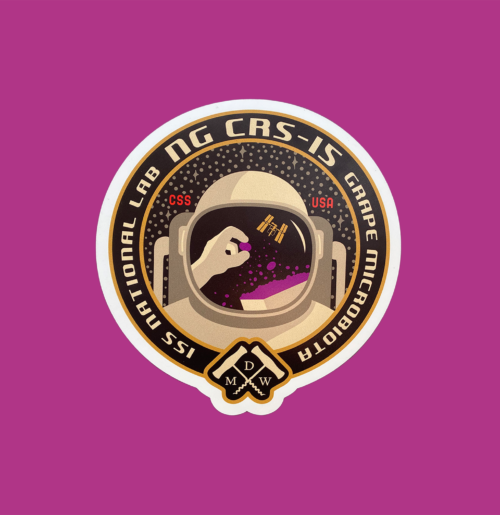Grape Microbiota
CSS was selected to develop an experiment payload to examine the effect of microgravity throughout the various stages of wine fermentation.


CSS is at the forefront of life sciences R&D that support both Earth and Space science. We were selected to develop an experiment payload to examine the effect of microgravity throughout the various stages of fermentation. The viticulture, or winemaking, industry has been selectively growing vine cultivars with different traits for millennia. The micro flora that coexists with the plant and fruit may be one of the key factors that influence the final product. To better understand the role and impact of microbes, a key approach would be to observe and measure the potential phenotypic and genotypic differences of the micro flora when they are exposed to a unique and/or stressful environment. Use of the ISS provides a unique environmental stressor consistently for microbial activity to occur in the grape juice and demonstrate micro flora expression throughout the critical stages of fermentation. This research can be targeted toward improving universal crop production characteristics including yield, size, nutrition, etc. for a positive impact for use in space exploration as well as Earth application.
The primary objective of this investigation was to induce fermentation in microgravity conditions representing a unique environmental stressor to important microbes responsible for fermentation. We hypothesized that the growth kinetics would trend differently amongst the existing populations of microbes native to the grapes, and that different microbial types would proliferate and become the dominant species in the fermenting juices when exposed to environmental stressors, and that these differences in expression would have an impact on various elements of grape juice as it ferments.
Additional Projects

Underground Transport Restoration Operational Technology Demonstration
CSS provided both technical and logistical support for the Underground Transport Restoration Operational Technology Demonstration.

Procedures, Plans, and Training to Support Emergency Response
CSS provided health and safety, field, and analytical support for EPA’s Consequence Management Advisory Division.

Harmful Algal Blooms (HABs)
We provide site-specific in situ monitoring coupled with predictive modeling, to provide an early warning system to advise health officials and resource managers on how to best focus their efforts to protect health and environment.

Get in touch
Contact us to learn more about our projects, capabilities, solutions, and service offerings.







